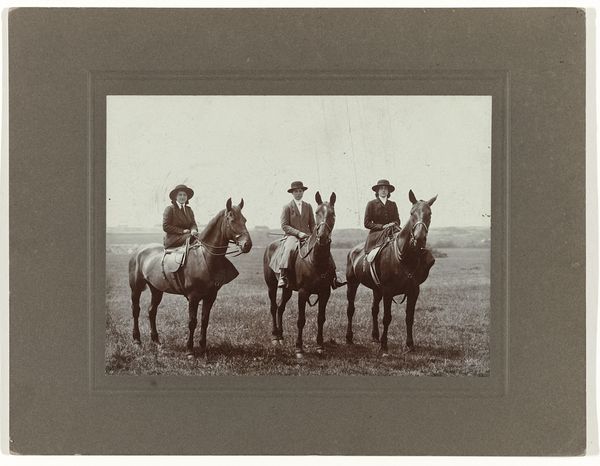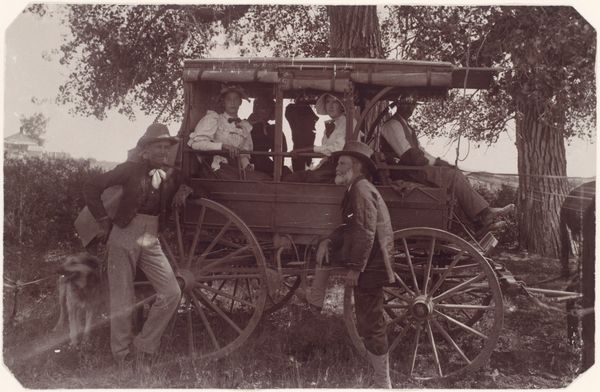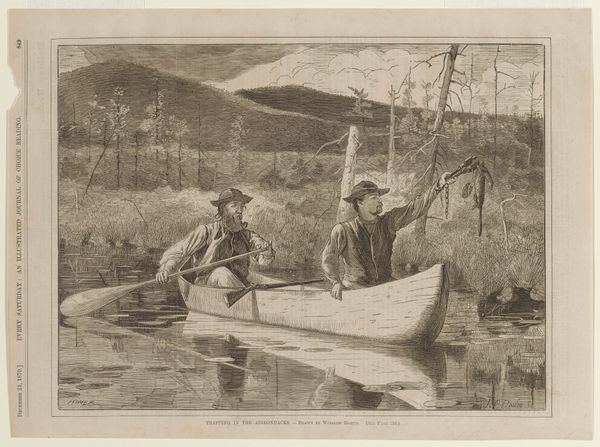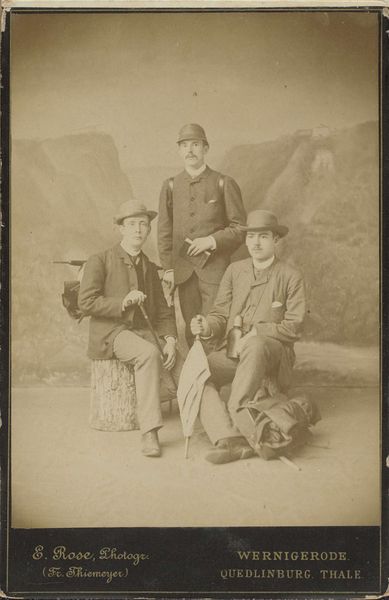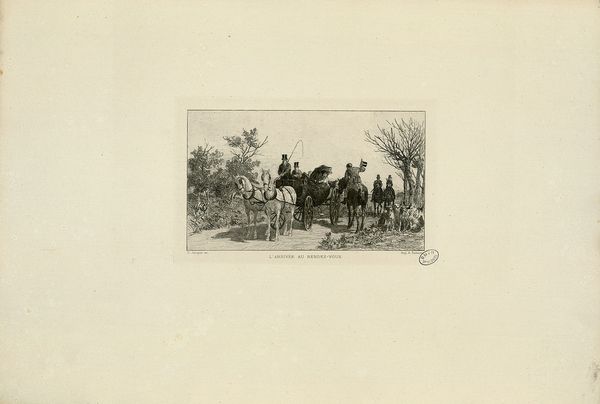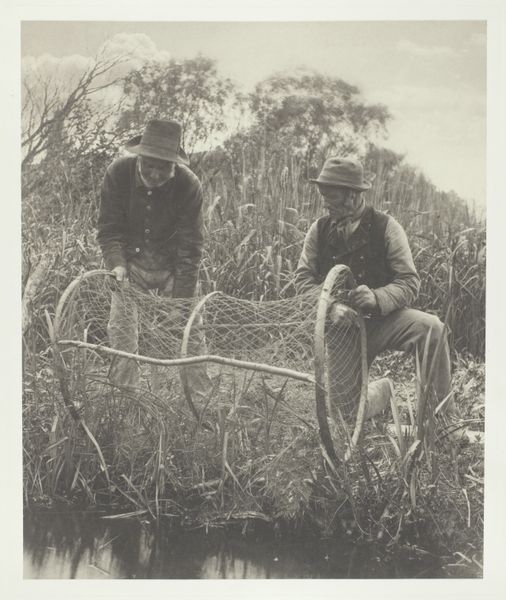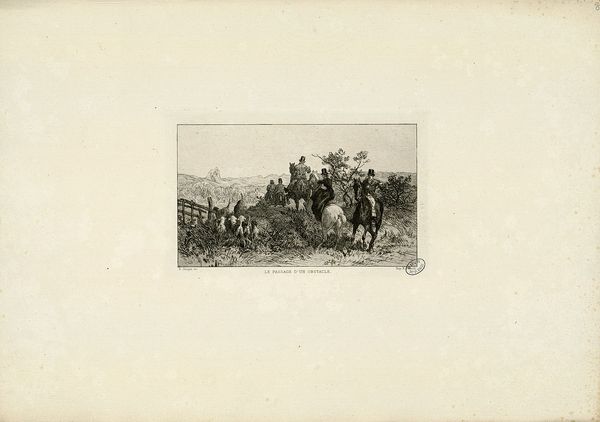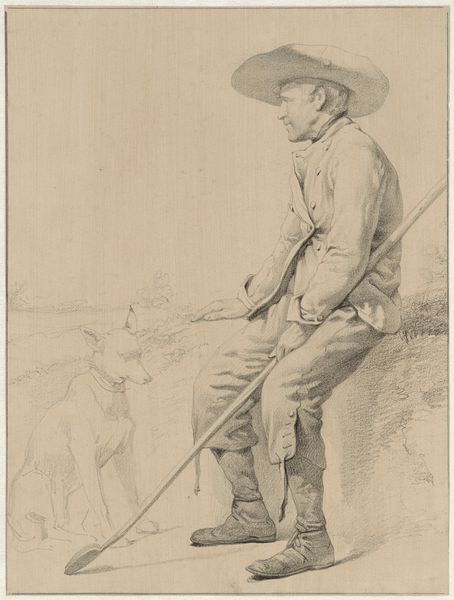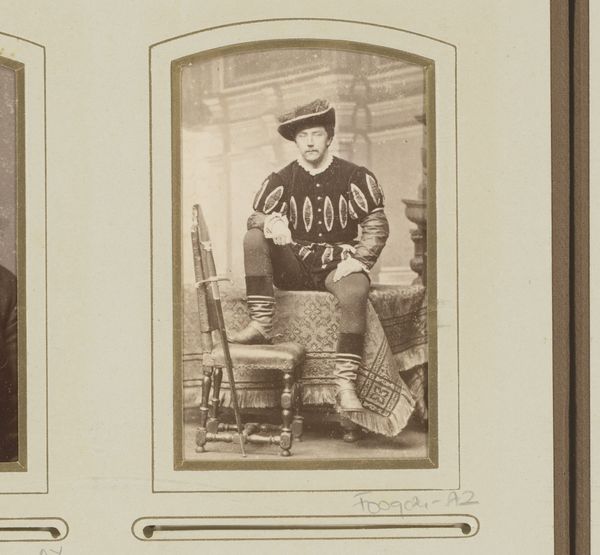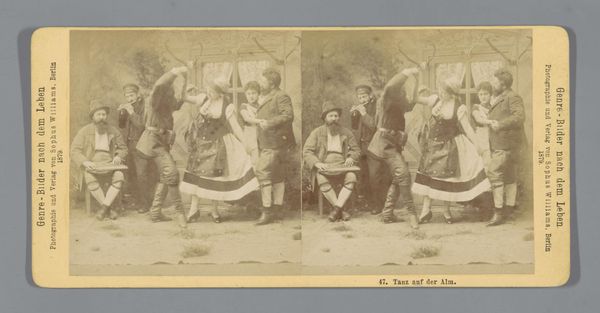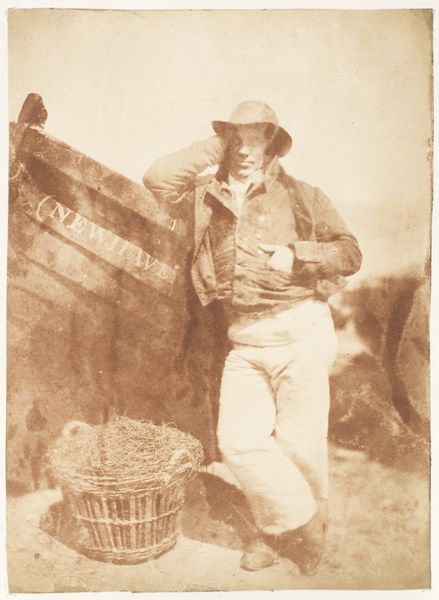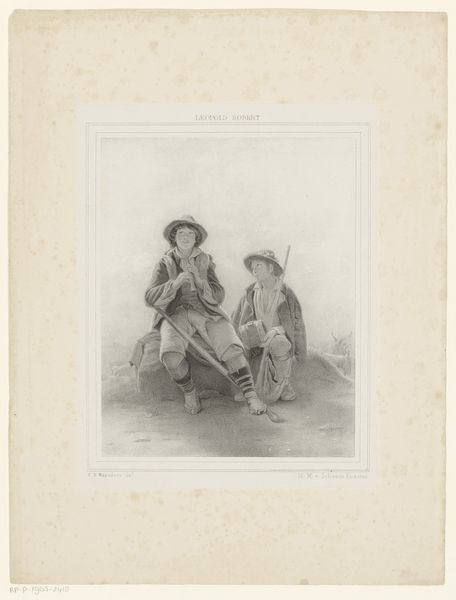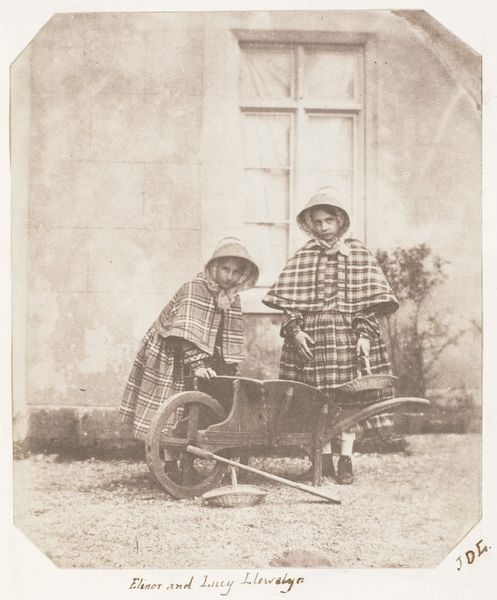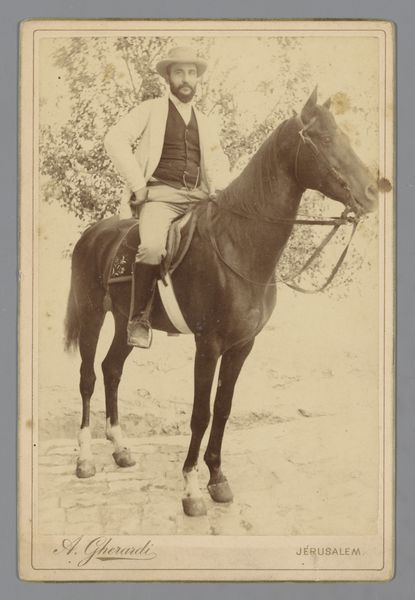
Dimensions: 357 × 275 mm
Copyright: Public Domain
Editor: This is "Campaign Sketches: The Baggage Train," a lithograph and etching by Winslow Homer from 1863. I notice these two men sitting in what seems like a wagon during the Civil War, but they appear relaxed. What's striking is the mundane scene amid such a turbulent time. What do you see in this piece? Curator: Indeed, it is vital to view Homer’s work through the lens of its time. The Civil War was not simply a clash of armies, but a profound social and political rupture. This print captures a quiet moment, yet it speaks volumes about race and labor during the conflict. Who are these men? Are they enslaved people, teamsters, or soldiers? The term "baggage train" itself reduces individuals to mere cargo, which mirrors the dehumanization inherent in slavery. How might this image challenge or reinforce prevailing racial stereotypes of the time? Editor: That’s a great point. I hadn’t considered the potential racial stereotypes at play here. Their relaxed posture made me think of them as everyday workers, maybe even soldiers. But if we consider the term “baggage train” and the social context, perhaps it's more complicated than that. Curator: Exactly. Homer, though celebrated, wasn’t immune to the biases of his era. This image provides a window into a specific historical moment. The ambiguity regarding the figures’ status also becomes a part of its narrative, raising difficult questions. It challenges us to grapple with the intersections of race, class, and labor during wartime. How can we engage with this image in a way that acknowledges both its artistic merit and its problematic historical context? Editor: So, the value is in considering how an apparently simple picture might raise complex questions. I guess it's up to us to confront it from different points of view. Thank you, this has broadened my perception! Curator: Precisely! Recognizing the art's role in reflecting—and potentially perpetuating—inequality is crucial for engaging meaningfully with history and forging a more just future.
Comments
No comments
Be the first to comment and join the conversation on the ultimate creative platform.
